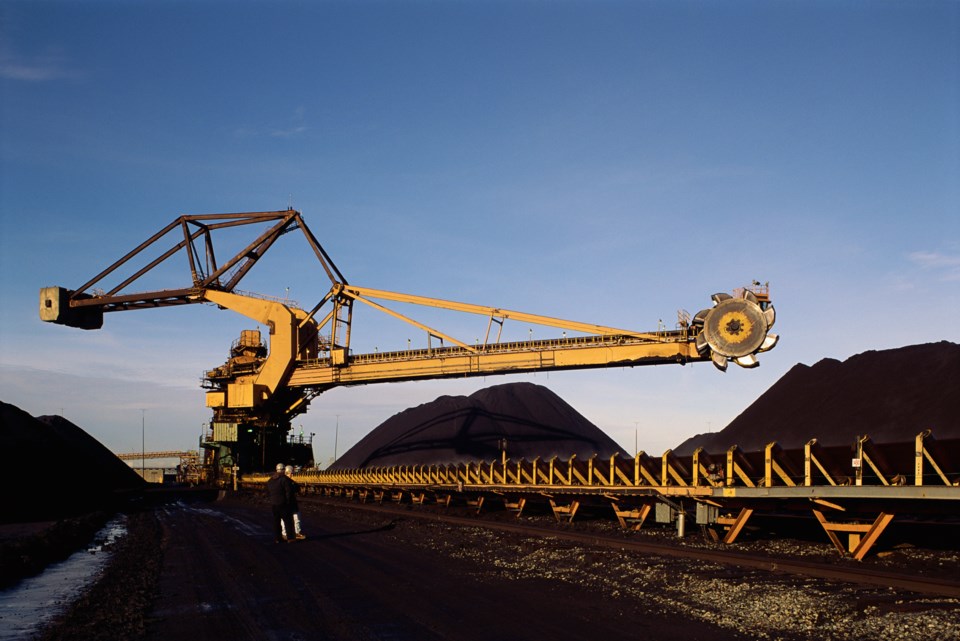On paper, it sounds like something a BC NDP government would support: A financial penalty against dirty American coal being shipped across the border for export out of Delta’s port as a measure to push back against U.S. President Donald Trump’s threat of tariffs.
But twice now, New Democrats have balked at the idea. Instead of finding creative ways to craft the penalties, they’ve found creative excuses not to act.
The latest was in the legislature Monday, after BC Conservative Leader John Rustad proposed applying the provincial carbon tax to the 18 million tonnes of annual American thermal coal (the kind burned for heat and electricity), and then holding the money until Trump gives way on softwood lumber tariffs.
“Vancouver is providing a service in terms of shipping thermal coal,” said Rustad. “We don't use thermal coal. It's an opportunity for us to look at it from a perspective of some leverage, to be able to try to get a deal done on softwood lumber.”
It’s a modified pitch from the one then-BC Liberal premier Christy Clark made in the 2017 election, when Rustad was in her cabinet. Clark proposed a 70 per cent carbon levy on American thermal coal to fight back against president Trump’s first-term tariffs. Then-NDP leader John Horgan didn’t support the idea at the time, calling it “irresponsible” and “not the time to rattle sabres” against Trump during an election.
After Horgan became premier, the NDP shelved the idea. Now, Trump is back again with new threats to double the softwood lumber duty and impose a 25 per cent general tariff on Canadian exports.
B.C.’s coal port in Delta remains the main way for Americans to export dirty coal from Wyoming and Montana to Asian countries, like China, which then burn it for power. It’s a major source of global pollution.
The reason Americans are so reliant on B.C.’s port is because thermal coal is such a dirty product that Washington state and Oregon won’t approve new export terminals.
You’d think striking a righteous blow for climate change, while also sticking it to the Americans, would make targeting thermal coal a double-win for the NDP government.
But apparently not.
New Democrats exhibited the same reluctance at the legislature Monday as they did eight years ago.
Premier David Eby paid lip service to the idea, mostly using question period to mock Rustad. The premier read out a previous quote from Rustad against B.C.’s plan to pull alcohol from Republican states.
“He's opposing our retaliatory tariffs against red states that are upholding this attack on Canadian workers and our economy,” said Eby.
“Now, if he wants to work with us to find areas where we can retaliate, where we can all stand together and support those things, I'm happy to do that.”
Translation: I’m not happy to do that, so take your idea and stuff it.
Energy Minister Adrian Dix offered a similar response.
“This is clearly federal jurisdiction,” he said. “It’s a way, I guess, to distract attention from [the BC Conservatives’] lack of position in support of Canada over this trade dispute.”
It would be federal jurisdiction if Rustad was proposing a tariff, but the province has the ability to alter the provincial carbon tax if it wishes.
Housing Minister Ravi Kahlon, who chairs the cabinet committee on Trump tariffs, also waved the proposal away.
“Every option will be considered,” said Kahlon. “But it’s hard to know with John Rustad whether he supports tariff response or whether he doesn’t, whether he supports a carbon tax or doesn’t, every day the position changes. And that indecision is weak.”
Almost as weak as a government that refuses to consider a good idea simply because it comes from its political opponents.
Rob Shaw has spent more than 17 years covering B.C. politics, now reporting for CHEK News and writing for Glacier Media. He is the co-author of the national bestselling book A Matter of Confidence, host of the weekly podcast Political Capital, and a regular guest on CBC Radio.




